About Us
History
Since the beginning of the establishment of the Institute for Humanities and Cultural Studies, the Faculty of Linguistics has been among the most valid research units of this institute. At present, this faculty consists of 8 faculty members, including 1 full professor, 4 associate professors and 3 assistant professors in 3 research groups, including “Iran’s Culture and Ancient Languages”, “General Linguistics” and “Dialectology”.
Objectives
- Preservation of Persian language while maintaining its capacity to meet various academic and cultural needs.
- Research and study of all Iranian languages and dialects at present and past specially for further recognition and advancement of Persian language.
- Developing mainstream theoretical linguistic research on Persian language and other dialects spoken in Iran.
- Developing interdisciplinary research in linguistics, such as cognitive linguistics, semiotics, clinical linguistics and socio-linguistics, computational and corpus linguistics, narratology and the interface between literature and linguistics.
- Application of computerized systems in different branches of linguistics;
- Developing research on Middle Persian;
- Establishing relationships with networks and associations of linguistic communities and related fields;
- Making the linguistics achievements applicable and relevant to national and regional needs and issues of Iran, including teaching Persian in scientific and cultural centres abroad;
- Cooperating with domestic and international linguistic institutes active in educational and research projects.
- Applying linguistic research in the analysis of language variations and other instances of the Iranian-Islamic civilization;
Scientific, Research and Educational Activities
- More than 70 completed research projects and 14 ongoing projects, including three major research projects of the Institute;
- Holding master’s degree courses of “General Linguistics” and “Iran’s Culture and Ancient Languages” since 1990, and PhD courses of the aforementioned fields since 2002.
- Holding lectures, sessions and workshops;
- Publishing academic journal of “Language Studies”
- Cooperation in publishing other linguistics journals such as the journal of “Language and Linguistics”.
- Publishing over 60 professional books, many of them received national awards including:
“A dictionary of Zoroastrian dialect in the city of Yazd” by Katayoon Mazdapour, chosen as book of the year of Islamic Republic of Iran;
“Word and its meaning from middle Persian to Farsi”, by Katayoon Mazdapour, chosen as book of the year of Islamic Republic of Iran;
“A study of 6th Dinkard”, by Mahshid Mirfakhraei, chosen as book of the year of Islamic Republic of Iran;
“Manual of Sogdian”, by Zohre Zarshenas, the outstanding academic book in the field of linguistics and winner of the Parvin E’tesami award;
“Khatun Argi’s letter and one hundred and nineteen pieces of Sogdian writing” by Zohre Zarshenas; the outstanding academic book and a book worthy of praise in the field of linguistics;
A Set of “Persian language for non-Persians” the outstanding educational work of international events and the scientific hub
Linguistic Corpora
Link to access: https://www.ihcs.ac.ir/corpora/fa
Persian Linguistic DataBase (PLDB)
This database is a huge linguistic corpus comprising of both modern and historical Persian language texts equipped with searching, recovering, processing and indexing software, accessible online by scholars and researchers of Persian language all over the world.
Link to access: https://pldb.ihcs.ac.ir/
Parsig Database
Parsig database is a database of Middle Persian language (Pahlavi Sasani) and will include all Middle Persian Zoroastrian texts. All the texts and words of this database are labelled manually. These labels include phonetic transcription, transliteration, Persian meaning, grammatical labels, principal parts, reference to chapters and subsections of books and reference to critical versions. Provision of data for this database began since December 2018 within the framework of a research project. The first phase of this project was accomplished within one year with support of Institute of humanities and Iran National Science Foundation and included labelling words of the book “Pahalavi Texts: Jamasp-Asana 1913” which contained about 20,000 words. The data of this database is yet to be completed and the completion will continue until the information about all the words of Middle Persian texts are entered. At the moment (November 2020) more than 50,000 words have been uploaded in this database.
Link to access: https://www.parsigdatabase.com/
Pahlvaj
The Comprehensive Dictionary of Middle Persian-Modern Persian (Farhang-e Jame’e Farsi-e Mianeh-Farsi-e No) is a dictionary in which the meanings of Middle Persian words are translated into Modern Persian. In this dictionary in addition to Persian meaning, phonetic transcription and references to Pahlavi words are included. Research in this dictionary is possible through 3 methods: 1- Pahlavi Words 2- Phonetic transcription 3- Persian meaning. This dictionary includes words of 9 Pahlavi texts namely Eradaviraf Name, Dadsetan Minavi Kherad, Revayat Pahlavi, Zand Bahman Yasan, Shayest Nashayest edited by Davar and Koutual, Karneme Ardeshir Babakan, Gozideh haye zad sparam, Madian yousht faryan and Pahlavi texts.
Persian Comprehension Assessment System
The main purpose of this project is planning and implementing the software of Persian comprehension assessment for students of Persian language in a dynamic and interactive way.
Link to access: http://coling.ihcs.ac.ir:8000/login/
Linguistic Lab
From the beginning of the establishment of linguistics faculty, one of the determined purposes within the framework of strategic policy-making have been creating a specialized linguistics lab. Finally, in 2014, by ratification of its construction and determination of the place of its headquarter in the faculty and after consideration of specialized linguistic labs within and outside Iran, a model of the lab’s structure was perceived in order to fulfil the needs of the researchers. This model involves a multipurpose hall for holding educational workshops, online conferences and executing group projects by a number of computers connected to a central server for processing linguistic data and an acoustic room for accurate recording of phonetic voices. This lab was inaugurated in June 2019 with the presence of Dr. Hosseinali Ghobadi, Dr. Massoud Broumand, Dr. Mostafa Assi and other professors and those interested in linguistics.
Link to access: https://www.ihcs.ac.ir/linglab/

